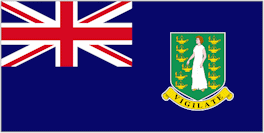Self Government
 In 1901 the Legislative Council was finally formally dissolved, and the islands were then officially administered through the Governor of the Leeward Islands, who appointed a commissioner and an executive council. The Territory was not remotely economically prosperous, and social services had deteriorated to a vanishing point. Emigration was extremely high, particularly to St. Thomas and to the Dominican Republic. Both concern and assistance from Britain was in very short supply, not least because of the two World Wars which were fought during this period.
In 1901 the Legislative Council was finally formally dissolved, and the islands were then officially administered through the Governor of the Leeward Islands, who appointed a commissioner and an executive council. The Territory was not remotely economically prosperous, and social services had deteriorated to a vanishing point. Emigration was extremely high, particularly to St. Thomas and to the Dominican Republic. Both concern and assistance from Britain was in very short supply, not least because of the two World Wars which were fought during this period.
In 1949 another unlikely hero emerged. Theodolph H Faulkner was a fisherman from Anegada, who came to Tortola with his pregnant wife. He had a disagreement with the medical officer, and he went straight to the marketplace and for several nights criticised the government with mounting passion. His oratory struck a chord, and a movement started. Led by community leaders such as Isaac Fonseca and Carlton de Castro, on 24 November 1949 a throng of over 1,500 British Virgin Islanders marched on the Commissioner's office and presented their grievances. They presented a petition which commenced:
"We are imbued with a desire to decide our local affairs with our own selves. We have outgrown that undesirable stage where one official, or an official clique, makes decisions for us... We are seeking the privilege of deciding how our monies are spent and what shall be our Presidential laws and policies."
The Legislative Council building in Road Town was erected about sixty yards from the market where Faulkner roused the crowds.
The voices of the people were heard. As a result of the demonstrations the previous year, the Legislative Council was reinstituted by the British Government in 1950 under a new constitution. The reformation of the Legislative Council is often left as a footnote in the Territory's history - a mere part of the process that led to the more fundamental constitutional government in 1967. The 1950 constitution was in fact always envisaged as a temporary measure (it was famously described by McWelling Todman QC as “an instrument minimal in its intent and its effect”). But, having been denied any form of democratic control for nearly 50 years, the new Council did not sit idly by.
In 1951 external capital was brought in to assist farmers from the Colonial Welfare and Development office. In 1953 the Hotel Aid Act was enacted to boost the nascent tourism industry. Up until 1958 the Territory had only 12 miles of motorable roads; over the next 12 years the road system was vastly improved, linking West End to the East End of Tortola, and joining Tortola to Beef Island by a new bridge. The Beef Island airport (now renamed after Terrance B. Lettsome) was built shortly thereafter. The Territory considered holding a plebiscite as to whether the British and U.S. Virgin Islands should merge under the U.S. flag.
External events also played a factor. In 1956 the Leeward Islands Federation was abolished. Defederation enhanced the political status of the British Virgin Islands. Jealous of its newly acquired powers, the Council declined to join the new Federation of the West Indies in 1958, a move that would later be crucial in the development of the offshore finance industry.
In 1967 the new constitution with a much greater transfer of powers was brought into effect by order in council, and introduced true Ministerial Government to the British Virgin Islands. Elections followed in 1967, and a comparatively young Lavity Stoutt was elected as the first Chief Minister of the Territory.
In the late 1970s, the British businessman Ken Bates attempted to lease a large part of the island on a 199-year lease, but this was blocked after a protest movement led by islander Noel Lloyd. Inspired by Martin Luther King, Noel Lloyd, started the Positive Action Movement in 1968 to protest the Batehill company’s development of land in the territory. The Batehill leases “were to run for 199 years…leaving less than 10% of Anegada to its own people, and creating a barrier that would separate the affluent Road Town harbour from the rest of the island.” Today, a life size statute of Noel Lloyd and face plates of other members of PAM stands in memory of their efforts at the Noel Lloyd Positive Action Movement Park in Road Town, Tortola.
|
NEWSLETTER
|
| Join the GlobalSecurity.org mailing list |
|
|
|

